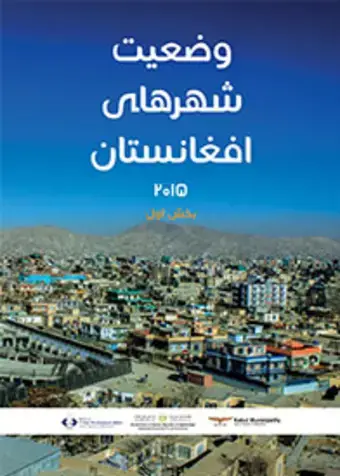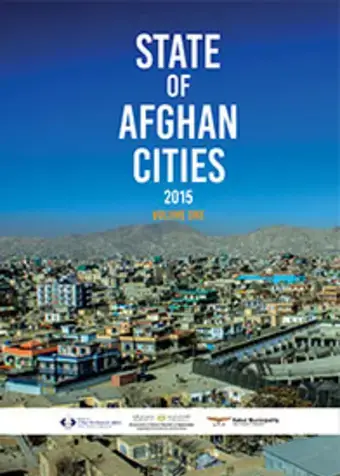 This paper examines the specific urban development challenges and opportunities facing the city of Kabul. It first presents the main findings from the State of Afghan Cities 2014/15 Programme land use and housing analysis.
This paper examines the specific urban development challenges and opportunities facing the city of Kabul. It first presents the main findings from the State of Afghan Cities 2014/15 Programme land use and housing analysis.
Understanding Urbanisation. Monitoring urban dynamics in a fragile and resource-constrained context.
 This discussion paper highlights that Afghanistan faces a formidable 'data deficit', especially in terms of urban–disaggregated data.
This discussion paper highlights that Afghanistan faces a formidable 'data deficit', especially in terms of urban–disaggregated data.
The paper reviews the current status of urban monitoring and provides an overview of the pioneering methodology developed in The State of Afghan Cities Programme 2014/15 to gather more reliable and up–to–date data on urbanisation.
Inclusive Cities. Toward gender equality, youth empowerment, and non-discrimination.
 This paper examines the situation in Afghan cities for:
This paper examines the situation in Afghan cities for:
(i) women and girls
(ii) returnees and Internally Displaced Persons (IDPs)
(iii) youth
(iv) ethnic minorities
Common to all is their heightened socio-economic marginalisation and vulnerability, exclusion from urban decision-making, and weaker urban safety and security.
Municipal Governance: A vital piece of the sub-national governance puzzle
 This discussion paper examines the situation, challenges and opportunities facing Afghanistan's cities in terms of municipal governance. It shows that the 33 Provincial Municipalities1 are a key sub-national governance element that are, more than ever, vital to achieve the Government's vision of a self-reliant Afghanistan.
This discussion paper examines the situation, challenges and opportunities facing Afghanistan's cities in terms of municipal governance. It shows that the 33 Provincial Municipalities1 are a key sub-national governance element that are, more than ever, vital to achieve the Government's vision of a self-reliant Afghanistan.





